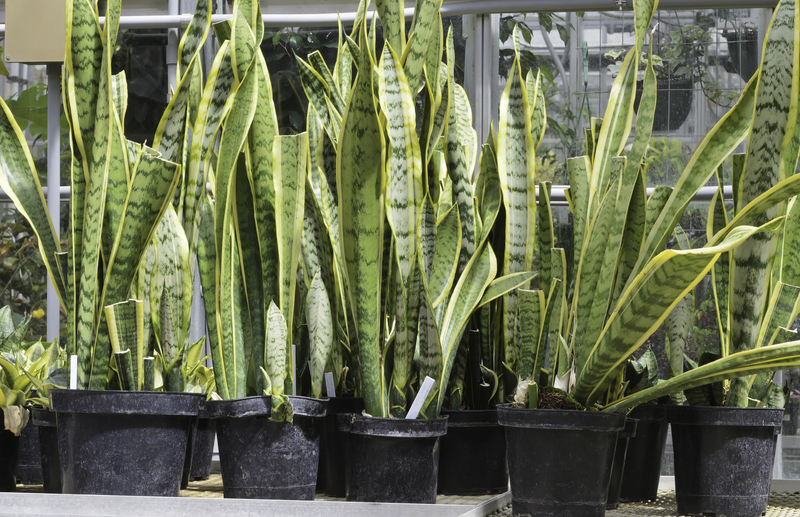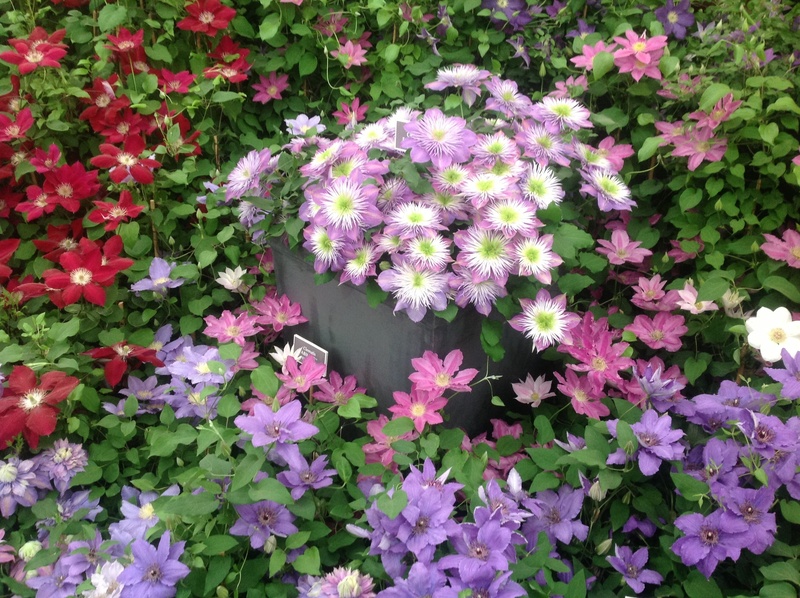From Seed to Bloom: 9 Gardening Tips for Newbies
Posted on 28/05/2025
From Seed to Bloom: 9 Gardening Tips for Newbies
Gardening is a journey filled with joy, patience, and a bit of trial and error. Whether you want to start an herb garden on your balcony or dream of vibrant flowerbeds in your backyard, learning the fundamentals will set you up for a successful and rewarding experience. In this comprehensive guide, you'll discover essential gardening tips for beginners, including how to nurture your plants from seed to splendid bloom. Let's dig into the world of horticulture and green thumbs!
1. Understand Your Gardening Space
Before sowing your first seed, take time to get to know your environment. This is a fundamental step for anyone starting gardening for beginners.
- Assess Your Sunlight: Observe how much sunlight different parts of your garden or balcony receive daily. Most vegetables and flowering plants require at least six hours of direct sun.
- Test Your Soil: Soil quality can make or break your gardening efforts. *Healthy soil* feels crumbly and drains well, yet retains some moisture. You can test pH and nutrient levels using store-bought kits.
- Understand Your Climate: Find out your region's USDA Hardiness Zone. This will help you choose plants suited to your local weather patterns, frost dates, and temperature fluctuations.

2. Choose the Right Plants
One of the most crucial tips for novice gardeners is to select plants that fit your space and climate. Some plants are more forgiving and require less maintenance.
- Start Small: Don't overwhelm yourself. Begin with a few easy-to-grow varieties such as marigolds, sunflowers, lettuce, or herbs like basil and mint.
- Read Plant Labels: Follow packet recommendations for sunlight, watering, and spacing requirements.
- Local Nurseries: Visit local garden centers for advice on the best plants for your region.
Growing what matches your gardening environment sets the stage for a thriving garden from the very first seed.
3. Invest in Essential Tools
Gardening doesn't require a shed full of tools, but a few good-quality basics can make your work more efficient and enjoyable.
- Hand Trowel: Perfect for digging, planting, and transplanting smaller plants.
- Pruning Shears: For trimming and maintaining the health of your plants.
- Watering Can or Hose: Opt for a can with a fine rose, ideal for seedlings and delicate flowers.
- Gloves: Protect your hands from dirt, thorns, and insects.
With these basic gardening tools, you're ready to tackle most beginner gardening tasks with ease.
4. Use Quality Seeds and Starter Plants
The foundation of a lush garden begins with high-quality seeds or healthy young plants, often called "starts."
- Buy From Reputable Sources: Choose certified or well-reviewed seed companies and nurseries.
- Check The Dates: Fresh seeds have a better germination rate. Always check the packaging for expiration or packing dates.
- Consider Seedlings: For instant gratification, buy small plants to transplant into your garden. This is ideal for vegetables like tomatoes or herbs like parsley.
Investing in healthy starts will ensure your gardening project gets off on the right foot.
5. Master the Art of Planting
Proper planting is at the heart of all effective gardening tips. Timing, depth, and technique are all important.
Reading Planting Guidelines
- Follow Depth Instructions: Some seeds need light to germinate and should be sown on the surface; others require a covering of soil.
- Spacing Matters: Crowding your seeds or plants can inhibit healthy growth. Use a ruler or stick for accurate distances.
- Water After Planting: Always water thoroughly after planting to help roots or seeds establish contact with the soil.
Timing is Key
- Cool-Season vs Warm-Season: Crops like lettuce, spinach, and peas thrive in cooler weather, while tomatoes, peppers, and beans prefer warmth.
- Transplant with Care: If starting seeds indoors, gradually accustom seedlings to outdoor conditions to prevent shock. This process is called "hardening off."
6. Nurture Your Garden with Proper Watering
Many new gardeners struggle with overwatering or underwatering. Plants need a consistent but not excessive supply of moisture.
- Check Before Watering: Stick your finger an inch into the soil. If it feels dry, it's time to water.
- Water at the Base: Water close to the roots to avoid wetting leaves, which can promote disease.
- Morning Routine: The best time to water your garden is early morning when evaporation rates are lower.
- Mulch: Apply a layer of organic mulch to help the soil retain moisture and suppress weeds.
Learning how to deliver just the right amount of water is a foundational gardening skill that every newbie must master.
7. Feed and Support Your Plants
Even the best soil will eventually need a nutrient boost. Fertilizing and offering support to taller plants are two critical gardening tips for beginners to keep in mind.
- Fertilize Wisely: Use organic compost or a balanced fertilizer to replenish nutrients. Too much fertilizer can burn plants, so follow package instructions.
- Stake and Tie: Tall or vining plants like tomatoes and beans benefit from stakes, cages, or trellises to keep them upright.
- Deadheading: Remove spent blooms to encourage new flower production and keep plants tidy.
Feeding and supporting your plants ensures vigorous growth from seedling to full bloom.
8. Do Regular Pest and Disease Checks
Pests and diseases can be a gardener's greatest challenge, especially for beginners. Prevention and early intervention are key.
- Inspect Often: Check plants for holes, spots, or discoloration on leaves.
- Natural Remedies: Pick off pests by hand and use organic treatments like neem oil or insecticidal soap when needed.
- Encourage Beneficial Insects: Ladybugs and lacewings eat aphids and other harmful bugs.
- Rotate Crops: Changing your planting location each year helps prevent the buildup of soil-borne diseases.
Healthy gardening habits and observation will keep your garden thriving season after season.
9. Be Patient and Enjoy the Process
The final, yet perhaps most meaningful, gardening advice for beginners is to embrace the process. Gardens don't grow overnight, and setbacks are part of the learning process. Savor the small wins--the pop of a new sprout, the color of your first blossom, the flavor of homegrown herbs.
- Keep a Gardening Journal: Track what you plant, when you plant it, and the results. This makes it easier to learn from your experience and plan for the next season.
- Celebrate Successes: Share photos and stories with friends or local gardening groups.
- Adapt and Learn: Every gardener, newbie or experienced, continues learning as nature throws new surprises every year.
- Connect with Nature: The physical and mental benefits of spending time in your garden can be just as satisfying as a beautiful harvest.
By appreciating every stage of gardening, you'll move confidently from seed to bloom while developing a lifelong connection to the earth.

Frequently Asked Questions About Gardening For Newbies
What is the best time to start a new garden?
Spring is often the ideal season to begin most gardens, right after the last frost date in your region. However, some cool-season crops can be sown in early fall or late winter, depending on your climate.
How do I choose the best soil for my garden?
Choose loose, well-draining soil with plenty of organic matter. You can amend your garden beds with compost, peat moss, or aged manure to improve quality and fertility.
How often should I water my plants?
This depends on your plant varieties and climate. As a general rule, most gardens need about an inch of water per week, either from rain or irrigation. Always check soil moisture before watering.
Can I garden in small spaces or indoors?
Absolutely! Many container gardening and indoor gardening options exist for those without outdoor space. Herbs, lettuce, and strawberries often do well in pots on windowsills or balconies.
Conclusion: Your Gardening Adventure Awaits
To sum up, whether you're inspired by the thought of vibrant blooms or homegrown veggies, gardening for newbies is both a practical and meditative pursuit. By following these nine comprehensive gardening tips--from understanding your space and choosing the right plants to nurturing and celebrating every stage of growth--you'll be well on your way from seed to spectacular bloom.
Happy gardening! Start sowing today and watch as your world blossoms into color and life. Remember: every seasoned gardener was once a beginner. With patience and care, you too can enjoy the miracle of growth right at home.
Latest Posts
Tips for Designing a Child-Friendly Backyard Retreat
Unleash Creativity with Vertical Garden Designs
Harnessing Nature to Reduce Wind in Your Garden

